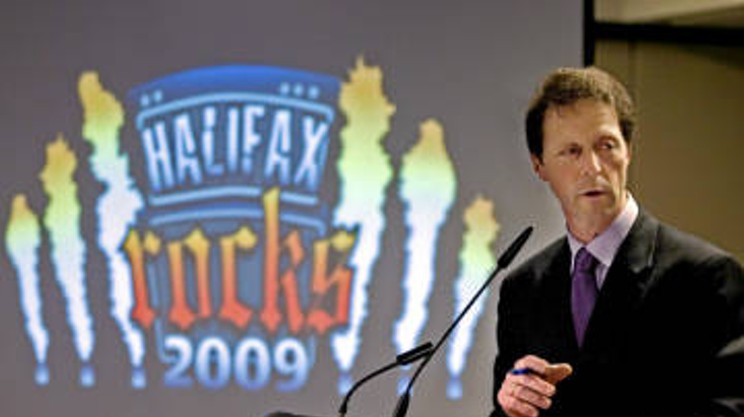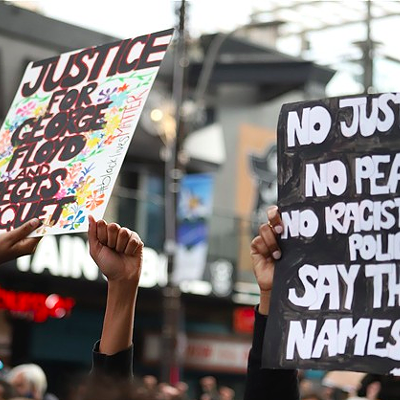Some readers might read more into my story than I intended. I am not against Common concerts. At least, not necessarily. Truly, even now I'm ambivalent on the issue: if the people of Halifax, or Nova Scotia, decide to collectively spend tax dollars on bringing Paul McCartney, or anyone else, to town, simply because they want to have fun, well, who am I to argue? But, I don't think the people can decide such a thing without first having all the information available to them, and first of all: how much will it cost? Without that bit of info, they'd be making an uninformed decision.
As usual, for me it comes down to secrecy: if a government expenditure is worth making, then it should be defendable in public. But as we've seen, the provincial government decided it didn't want to publicize its $600,000 contribution; I can only conclude that government officials felt it was indefensible.
Regardless, after the fact there have been all sorts of justification and arguments made in favour of the McCartney expenditures. For example, as reported in the Chronicle-Herald:
Harold MacKay, president of Power Promotional, said his company’s analysis shows that the McCartney show generated about $2.8 million in HST revenue and that show, combined with one a week later featuring Kiss, generated about $24 million for local businesses.Likewise, Liberal MLA Andrew Younger emailed me with a similar argument:
I did some quick math and by my math the province made a profit on McCartneyI would argue that these various arguments are actually a diversionary tactic: they serve to take our eyes of the ball of secret government expenditures---of knowledge kept from the citizenry---and to get bogged down in arguments about HST and the rest. So, I'm tempted not to address them at all.For example, say 50,000 tickets at $100. I actually think more were sold and at a higher average price but anyhow.
The provincial HST revenue on those tickets is $400,000. That does not include HST revenue on liquor, merchandise, staging/equipment rentals etc.
Thus when all is considered it appears even conservatively the province would have at least broken even.
However, the economic arguments to justify-after-the-fact hit on another bugaboo of mine: bullshit economic impact calculations. So, keeping in mind that the primary issue with the McCartney expenditures is secrecy, not the economics behind them, let's nonetheless tease out those arguments a bit. First of all, there are several moving balls here: the actual number of concert attendees, the money they spent and the HST collected from that money. (As we'll see, even these moving balls are distractions.)
MacKay disputes my source's contention that only 26,000 tickets were sold for the McCartney concert, but I trust the figure. I hope to soon get into the issue in a bit more detail, but suffice it to say that it's obvious that a threshold ticket sales level wasn't met, and neither MacKay nor Trade Centre Limited will provide actual numbers (more secrecy!), so why shouldn't I trust my source's figures? If there were more than 26,000 tickets sold, then MacKay and TCL should provide documentation for a higher figure.
Yesterday, Beverly Miller, a long-time opponent of Common concerts, sent me a 2007 letter she had received from Barb Stegemann, who was then TCL's communications person. I've uploaded the entire letter, here.
The letter concerns the Rolling Stones concert. Stegemann helpfully provided exact ticket sales numbers, the first I've seen, and supposed related expenditures:
[T]he attendance expenditures were calculated at 39,875 attendees spending $135.24 each based on an average expenditure survey done exclusively for that event which amounts to $5,257,455.00 in addition to the Event Expenditures of $599,451, the amount is $5,856,906.00.I say "supposed" in part because Stegemann's math is wrong: 39,875 people spending $135.24 bring a total of $5,392,695, not the lower figure of $5,257,455 Stegemann provided. I also have no idea what methodology TCL used for surveying concert-goers, but If TCL couldn't get simple multiplication right, why should we expect they could get any other aspect of their economic impact analysis right?
[It's entirely an aside, but TCL's survey of downtown businesses is also interesting: apparently fully half of them lost sales due the Stones show, while another 27 percent saw no change in sales, and yet 69 percent of them of think it's a good idea to have more big concerts on the Common.]
Like economic impact bullshitters everywhere, TCL evidently used a "multiplier"--- a figure picked out of thin air that is supposed to represent the number of times any given dollar recirculates in the local economy. MacKay, in any event, claimed that the McCartney and the KISS shows jointly "generated about $24 million for local businesses." MacKay isn't saying how many people actually attended either show, so it's impossible to know, but it looks like the multiplier is about 3. That's actually pretty low as these things go---economic forecasters often pull the number 7 out of thin air as a multiplier.
But anyway, $5.39 million, or $5.26 million or $24 million---how could anyone argue that this is a bad thing? Isn't that $5.29 million, or $5.26 million, or $24 million, that wouldn't have been spent otherwise?
I'm hoping that Coast readers can see the problem here directly.
The argument supposes that the Canadian mint fired up the presses and printed up $5.39 or $5.26 or $24 million in special Halifax Rolling Stones bills, distributed exclusively for concert-goers, for free.
But of course, what really happened is that people with limited resources made budget choices: they spent (supposedly) $135.24 on Stones-day expenditures instead of spending $135.24 on baby formula, or Farmers' Market goodies, or crack, or credit card debt. In other words, the money was just shuffled around differently. We can't really know the economic impact of the concert unless we also consider the economic multiplier of spending money on baby formula, Farmers' Market goodies, crack and credit card debt. Quite possibly, the multiplier for baby formula and crack is larger than the 3 multiplier for Common concerts.
And the same goes for HST collections: that $135.24 would've been somewhere. I suppose you could argue baby formula and crack sales aren't taxed, but certainly the baby formula and crack dealers eventually get around to spending their sales money on taxed items.
There were of course people who came from out of town and spent money in Halifax instead of buying baby formula or crack in Sydney, or wherever, but I've seen no reliable figures for how many such people came to town, so it's impossible to calculate the full effect. It's also possible that some number of people left town because they didn't want to deal with the Stones crowds--- and they in turn spent their Halifax baby formula money on Saint John crack. Who knows?
Still, however nonsensical they are, TCL obviously runs such calculations and keeps economic impact reports locked up in a vault somewhere in the Argyle Street headquarters. So, I asked Stegemann's replacement, Fiona Kirkpatrick Parsons, for the figures on the Paul McCartney show. Her response:
What you’re asking me to share with you is actually proprietary information; it would most certainly be a breach of our contract with the promoter to disclose any ticket sales numbers -- not only for this concert, but virtually all events for which we sell tickets. This is the norm with these types of contractual agreements in the events business.So did Stegemann violate TCL policy? Kirkpatrick Parsons isn't saying. Regardless, we're supposed to take the "$8 million in direct sales" as gospel truth, and I guess, ignore the baby formula and crack-buying displacement effect I outlined above.TCL did conduct an economic impact study of the Paul McCartney concert last summer--using generally-accepted, current industry practices--and that concert generated an estimated $8 million in direct expenditures.
Bottom line: between the secrecy, the bullshit assumptions going into these calculations and the ignoring the baby formula/crack dispacements, the economic impact reports are worse than meaningless: they're insulting.
I'd be happier if Common concert supporters simply said they want to see Paul McCartney, or whoever, and they want the taxpayers to foot some of the bill, and to tell us the true costs upfront.













